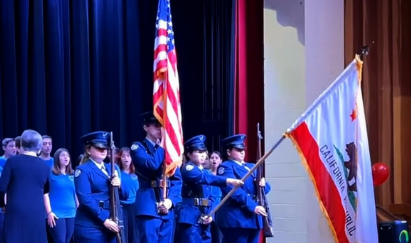
At Santiago High’s AFJROTC program, cadets don’t just learn about leadership–they live it. AFJROTC, “Air Force Junior Reserve Officer Training Corps,” is 99% student-run and can replace your PE class. The mission of JROTC is “Developing citizens of character.” The program helps students prepare for the future by developing leadership, discipline, and communication skills. Cadets in this program do many events, extracurricular activities, and community service. This semester, I had the pleasure of interviewing fellow cadets and instructors to gain a deeper insight into why this program is so distinguished and to gather their perspectives on JROTC. With this in mind, I first interviewed the JROTC instructors, Major Michael Manney and Master Sergeant Alton Randle. The Air Force rank “Major” is an officer position required to be commissioned into the Air Force by completing 4-5 years of ROTC, or graduating with a college degree. The rank “Master Sergeant” is a senior non-commissioned position that enlists in the military.
First I asked, “What important skills can you gain from JROTC?” When I interviewed Major, he made it clear that cadets have the opportunity to grow their potential in this program. For instance, he enunciated, “self-confidence is the most important skill that young cadets learn when we put them into a situation where they can grow their confidence and ultimately lead them into being future leaders.” Master Sergeant added, “This class is designed to be a civics class on how to be a great citizen. So, we teach lessons and time management, following directions, how to drill, wearing clothes properly, etc.” Not only is JROTC a program to learn about the military and acquire new skills, but it also develops students to be better citizens.
To gain deeper insight into their thoughts of cadets, I finally asked, “What is the most important aspect you value in cadets?” The most important aspect that Major values is “Integrity. It’s the first Air Force Core Value and ties into the Be A Shark motto. ‘Having integrity’ means you can trust an individual to do a task without a supervisor to get things done.” On the other hand, Master Sergeant emphasizes “Heart. I value someone wanting to try to be better and do better.”
Inspired by their perspectives, I then interviewed fellow cadets and asked them the following questions:
“Why did you decide to join JROTC?”
“I decided to join JROTC a while ago. In elementary school, I would see my sister getting dropped off on campus, and I saw someone wearing a uniform. I would dress up in a military uniform for Halloween, and that marked the point of it all. I came for the uniform, but stayed for the leadership experience.” -Jack Koranda (10)
“Well originally, I came to get out of PE because JROTC is a PE class, but then I realized that it would be a good opportunity to be a leader and be part of a community in school, which I haven’t really done before.” -Devon Stewart (11)
“What is the best thing about JROTC that stands out to you?”
“The best thing about JROTC is meeting and learning from cadets. Inside JROTC, I’ve met many great leaders who motivate me every day to demonstrate the standard leadership excellence.” -Olivia Araujo (10)
“The best thing about JROTC is the extracurriculars we do, and the positions/jobs we can apply for that can help us within the corps. Also, the best event in JROTC is Death March, the once-a-semester twelve-mile hike at the Skyline Trail that we do with many cadets. It was a great experience and was so fun.” – Jack Koranda (10)
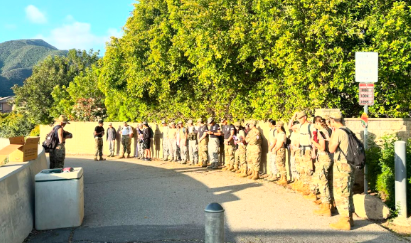
“What are common questions people ask in JROTC that you’d like to address?”
“Well, the most common question is if we enlist in the military after JROTC, and no, we do not. You can enlist in the military if you’d like or still be a civilian. Another question is if we wear uniforms on Wednesdays, which depends, but yes, we usually do.” -Landen Wert (11).
“Sometimes people ask, ‘Isn’t JROTC super strict?’ Well, it’s not as strict as you think, since it is a cadet-run program, you learn leadership skills instead of just following orders.” – Asha Zachariah (10)
“Some common questions I’ve received about JROTC is ‘Do they recruit you?’ No, JROTC does not recruit you into the military; it’s a voluntary program. Another question is, ‘Do you do PE?’ Yes, you still have to do ‘PT’ [Physical Training] as a requirement, but it’s only one day out of the week.” – Olivia Araujo (10).
“Can you describe extracurricular teams JROTC offers that stand out to you?”
“The Drill and Raiders team. In the Drill team, cadets go in a formation and learn to be professional in their movements. We also get to use rifles for the Armed Drill. In Raiders, you get to flip tires, go through rope bridges, and do activities that make you more physically fit. ” -Asha Zachariah (10)
“If I had to pick two, it would be Kitty Hawk and Honor Guard. Kitty Hawk is our “academic” team. They can participate in academic competitions. The Kitty Hawk commander also tutors cadets. Honor Guard is a special team that stands out because of how selective they are. They pick cadets who have experience with drill or color guard who have shown outstanding skills and leadership abilities.” – Fabio Pabon (11)
“There is Colorguard, where in comps (competitions), you have four people in detail, and instead of learning just movements, you can do them with flags, and it’s only a group of four instead of a big formation.” – Devon Stewart (11).
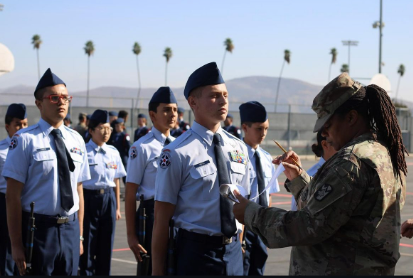
Finally, I spoke to two seniors who have been in JROTC since their freshman year. First, I asked, “As an AS4 (cadet who has been in the program for four years), what can you say has been a valuable experience or lesson you’ve learned?” Fall semester’s Corps Commander, Cash Weyl (12), responded, “Humility, I thought I owned the world, but the world kicked me, so I gotta keep moving forward with modesty.” Spring semester’s Deputy Corps Commander, Chardonnay Arias (12), responded with, “There’s so many, like respecting people regardless of your feelings towards them, being interviewed for a job position, and meeting many people that go on different paths yet we are all able to help each other to become a better leader.” My final question was, What will you miss the most about JROTC? Cash answered, “I will miss the great lessons I learned with the seniors there when I was a freshman; they taught me everything I know.” Chardonnay answered, “The people. The instructors have been my AFJROTC teachers for four years now. They have been present throughout my high school career, and I am so lucky to have them and all the students who join. Just watching them grow from their freshman year into higher officer positions in which they excel is so rewarding, and I love being a part of an environment that encourages growth.”
After interviewing the instructors and cadets, it is evident that integrity, heart, and respect make up Santiago High School’s AFJROTC cadets. The program instills willpower and leadership skills and brings a sense of community and belonging. From meeting like-minded leaders to participating in after-school teams, we all have one mission: to become better citizens.

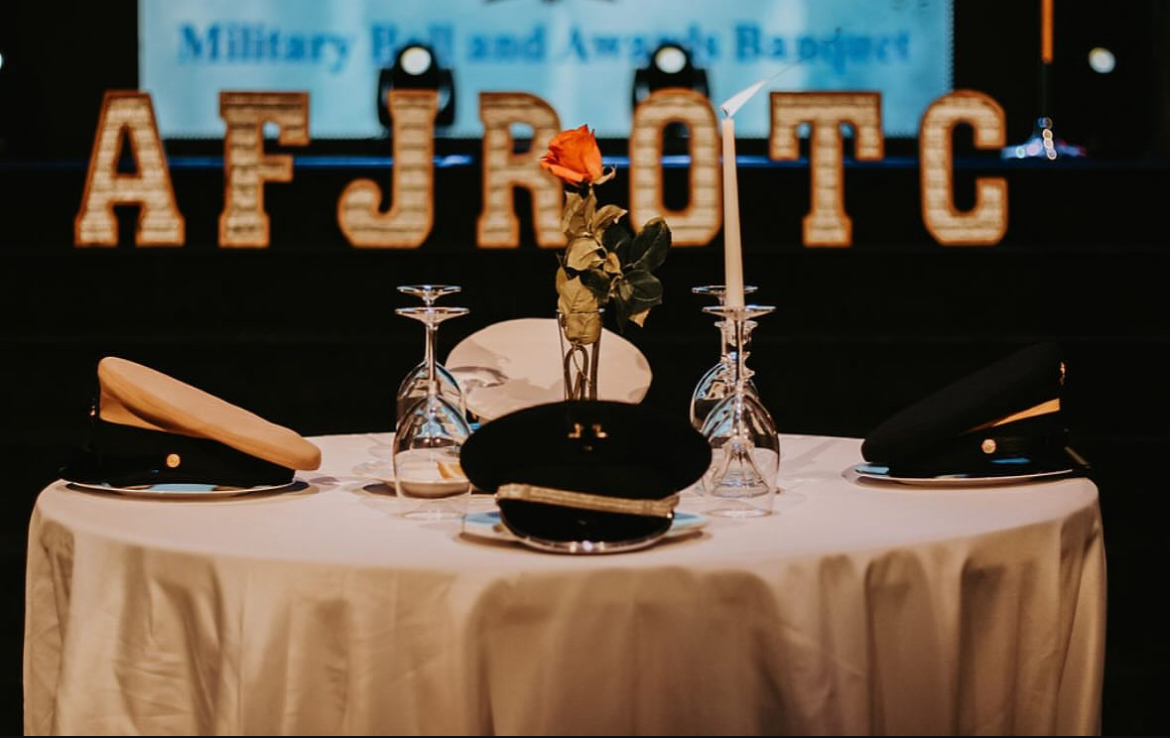

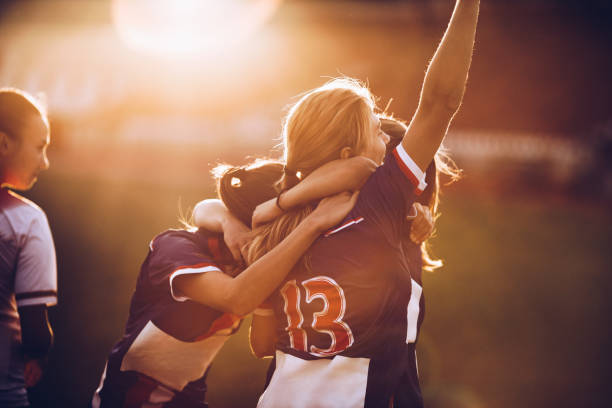
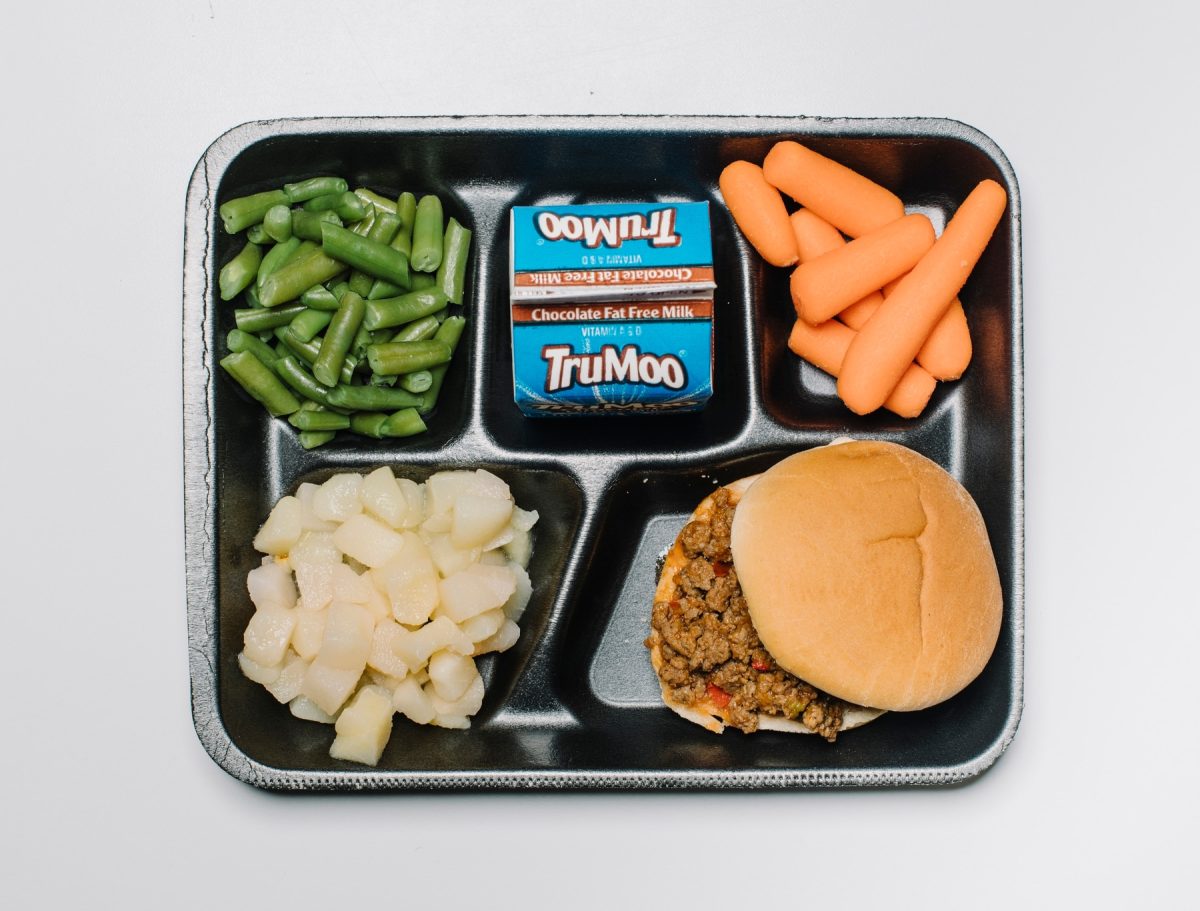
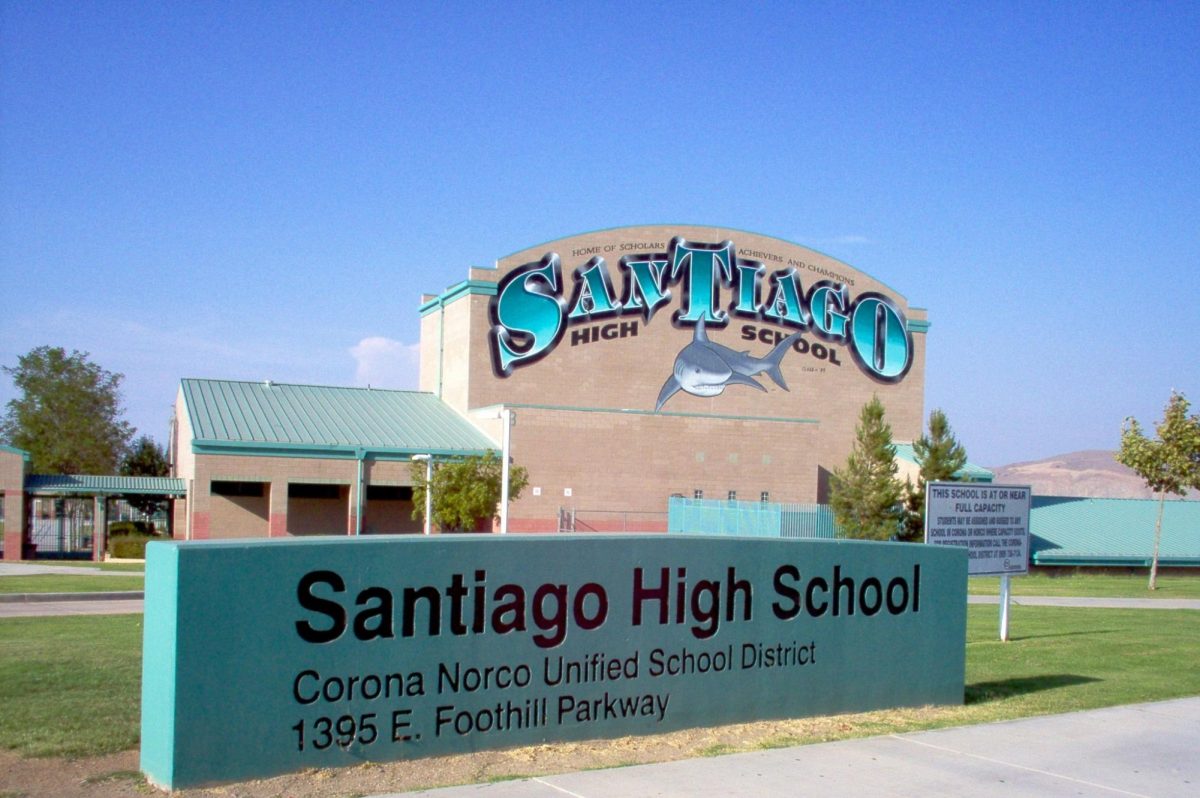
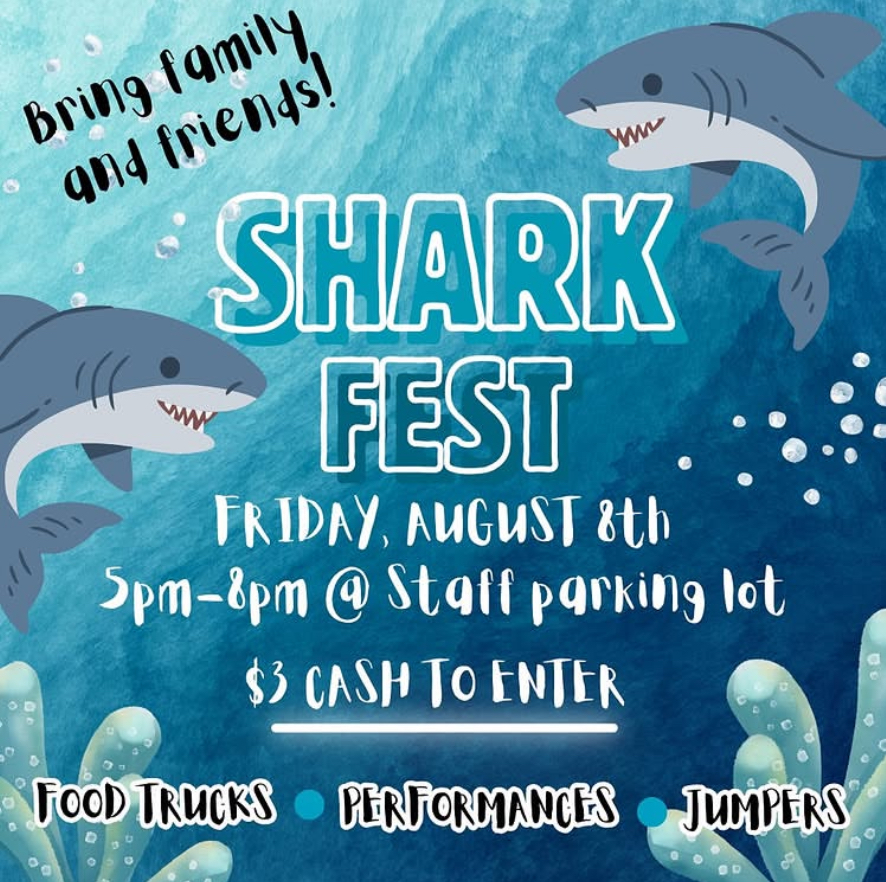

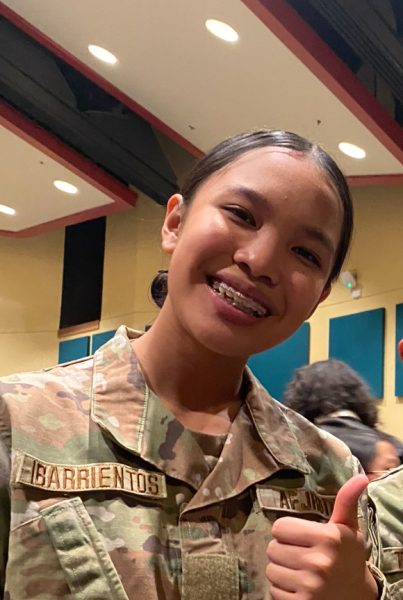
Chuck R • Sep 25, 2024 at 7:07 pm
After my ROTC, I joined the USAF to see the world it was the great achievement of my life, learned a great skill, earned great life skills, able to buy a home 3cars, start a family raise two kids.